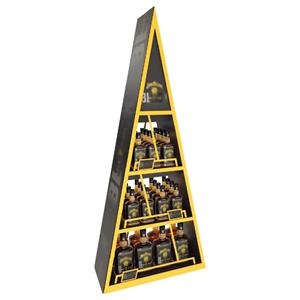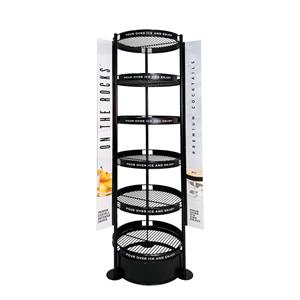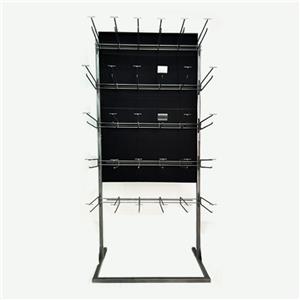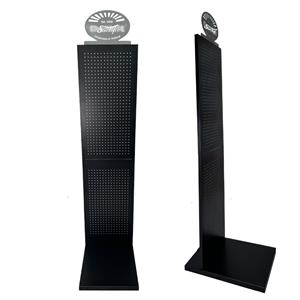What Is the Ideal Design Ratio for Display Racks?
What Is the Ideal Design Ratio for Display Racks?
Table of contents
1)Introduction to Display Racks
2)What Is the Golden Ratio for Display Rack Design?
3)Prime Product Placement: First and Second Shelves
4)Larger Products: Best Use of Lower Shelves
5)Research on Ideal Display Heights
6)Conclusion
7)Sintop Value: Customization for Western Customers
What Is the Ideal Design Ratio for Display Racks?
Custom Display Rack are essential for showcasing products effectively, especially in retail settings. A custom-made display rack, unlike regular shelves, needs to be professionally designed to best present product features. In this article, we’ll explore what height makes for the ideal display rack dimensions, particularly for customers.
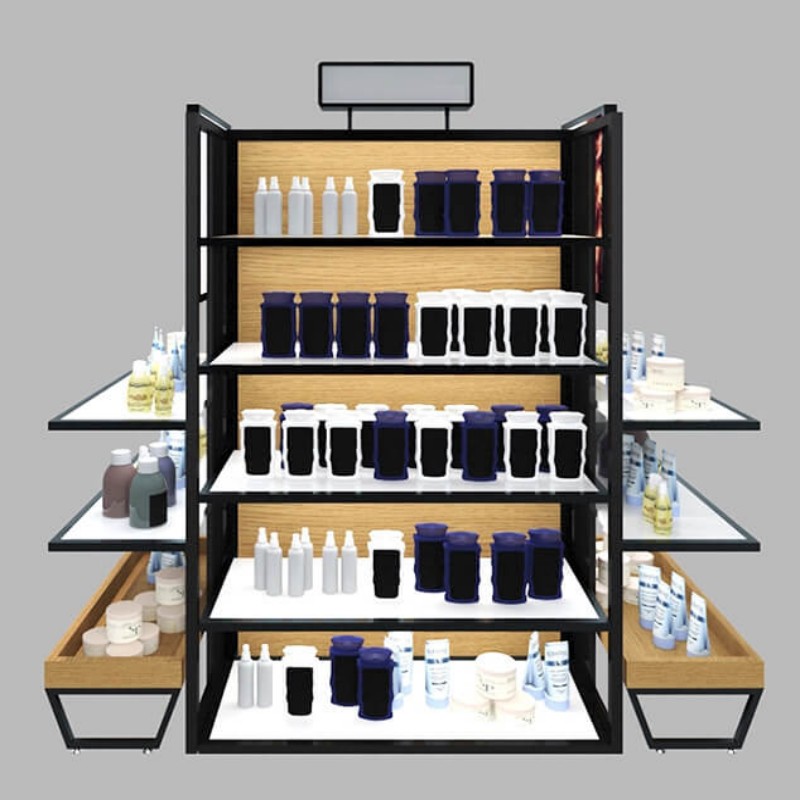
What Is the Golden Ratio for Display Rack Design?
1.7 Meter Display Rack: The Ideal Height for Western Customers
According to research on customer shopping behavior in Western countries, the average height of adults suggests that a Food Display Stand height of 1.7 meters (5'7") is the golden dimension for accessibility and visibility. This ensures that products are easily reachable for most customers.
The First and Second Shelves: Prime Product Placement
The top two shelves of the Fruit display rack , located at eye level (between 1.1 to 1.4 meters), are the most important spots for displaying high-profit products. This area aligns with the average customer's line of sight, making it perfect for products you want customers to notice first. These levels follow the “grab-and-go” principle, making it easier for shoppers to pick up the items they desire.
The Third and Fourth Shelves: Larger, Lower-Priority Products
The Wine display rack shelves below eye level should be used for larger, bulkier, or lower-margin products. Since these are positioned between waist level (0.7 to 1 meter) and below, they are ideal for items that may not need as much visual attention.
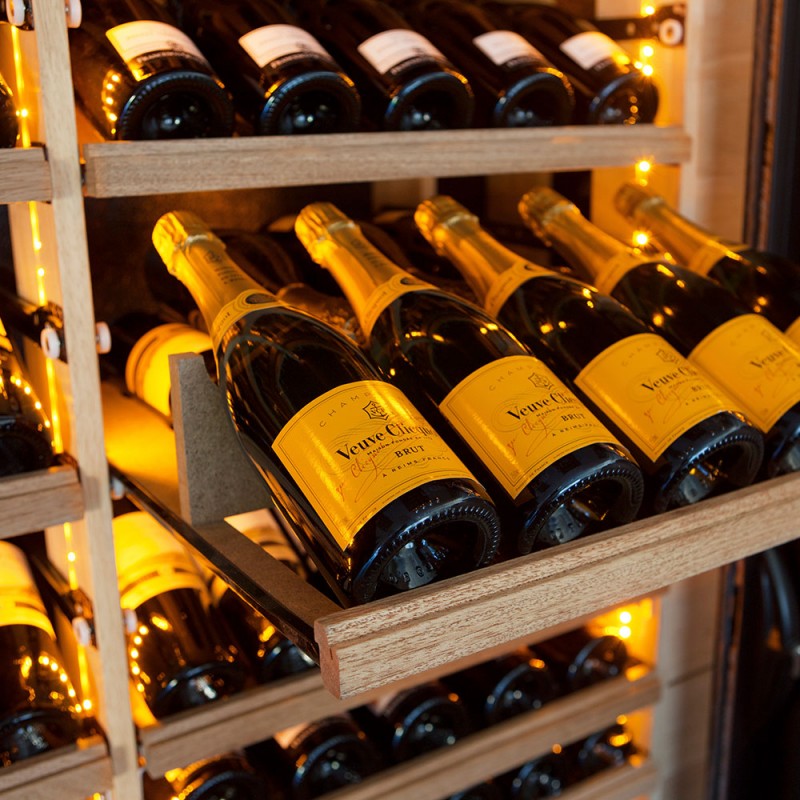
Data Validating the 1.7 Meter Rack Height
Research on customer shopping habits in Western countries reveals some key insights:
Eye Level (First Look): 38% of customers pick up their desired main products after scanning the first two shelves and then move on to other categories.
Waist Level (Second Look): 55% of customers take additional products from the middle shelves but often do not explore further.
Lower Shelves (Third Look): Only 14% of customers check the bottom shelves. These lower levels are often neglected, which impacts the visibility of the products placed there.
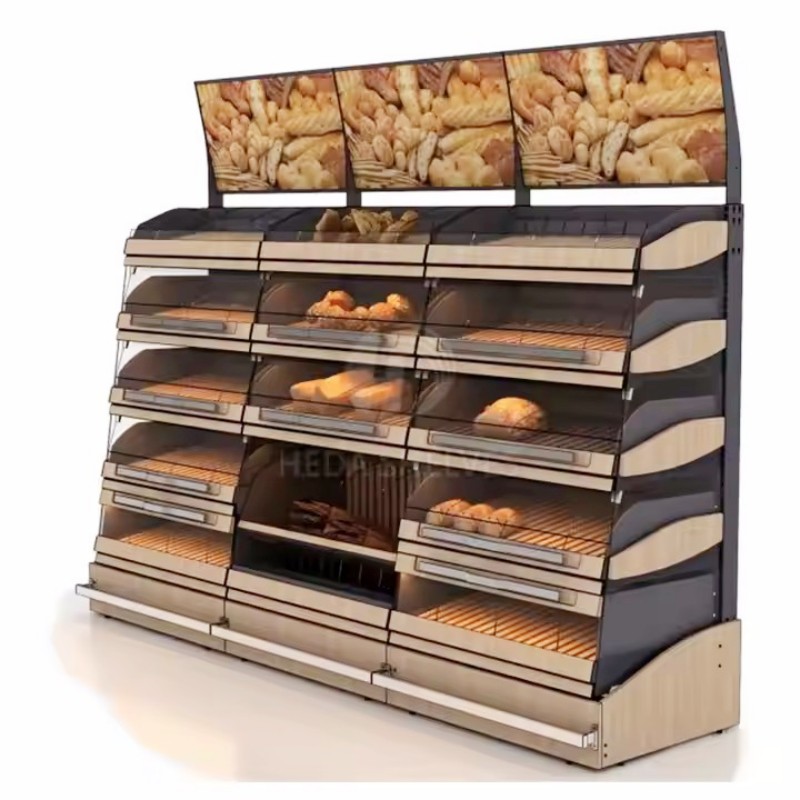
Conclusion
Given these findings, it's clear that a custom Bread display rack, tailored to customer height and preferences, offers better product presentation than using a generic, one-size-fits-all rack. At Sintop, we design racks based on customer needs, ensuring that every inch of the display is used effectively to enhance sales and customer satisfaction.
Sintop Value:
At Sintop, we specialize in creating custom display racks that consider the average height and shopping preferences of Western customers. Our racks are not only functional but are also designed to improve product visibility, resulting in higher sales and better customer experiences.

Contact information
Website: www.sintopfixtures.com
Wechat/WhatsApp: +86 15980885084
Email: elly@xm-sintop.com
FAQ
1. What are store fixtures?
Store fixtures are essential equipment and furniture used in retail spaces to display, organize, and store merchandise. Examples include shelving units, racks, display cases, counters, and hooks.
2. Why are store fixtures important?
Store fixtures enhance the shopping experience by organizing products, improving accessibility, maximizing space, and creating appealing displays that attract customers and boost sales.
3. What types of store fixtures are commonly used?
Common types of store fixtures include:
Shelving Units(wall shelves, free-standing shelves, adjustable shelving)
Display Cases (glass cases, countertop cases)
Racks (clothing racks, display racks)
Counters (checkout counters, service counters)
Hooks and Pegboards
End Caps
Signage and Graphics
Mannequins
4. How do I choose the right store fixtures for my retail space?
Consider your merchandise type, store layout, and branding needs. Fixtures should be functional, complement your store's design, and fit within your budget. Evaluate your space to determine the best fixture types and configurations for optimal product presentation and customer flow.
5. Can store fixtures be customized?
Yes, many store fixtures can be customized to align with your store's branding and specific needs. Customization options include materials, colors, sizes, and designs. Collaborating with a fixture supplier or designer can help create fixtures that match your store’s style and functional requirements.
6. How can I maximize space with store fixtures?
Utilize fixtures that optimize vertical space, such as wall-mounted shelves and tall display racks. Modular and adjustable fixtures can adapt to changing merchandise or store layouts. Plan your store layout carefully to ensure efficient use of space and smooth customer flow.
7. How do I maintain store fixtures?
Regularly clean and inspect fixtures to ensure they remain in good condition. Check for wear and tear, and repair or replace damaged parts. Follow manufacturer guidelines for maintenance and cleaning to extend the lifespan of your fixtures.
8. Can store fixtures be used for different types of retail stores?
Yes, store fixtures can be adapted for various retail environments, including clothing stores, electronics shops, grocery stores, and more. The choice of fixtures depends on the specific needs and merchandise of the store.
9. How can store fixtures improve the customer experience?
Well-designed fixtures make products easy to find and browse, enhancing the overall shopping experience. Effective use of fixtures creates an organized, aesthetically pleasing environment that encourages customers to spend more time in the store.
10. Where can I purchase store fixtures?
Store fixtures can be purchased from specialized fixture suppliers, retail equipment stores, or custom fixture manufacturers. Online retailers and local suppliers also offer a wide range of options.

